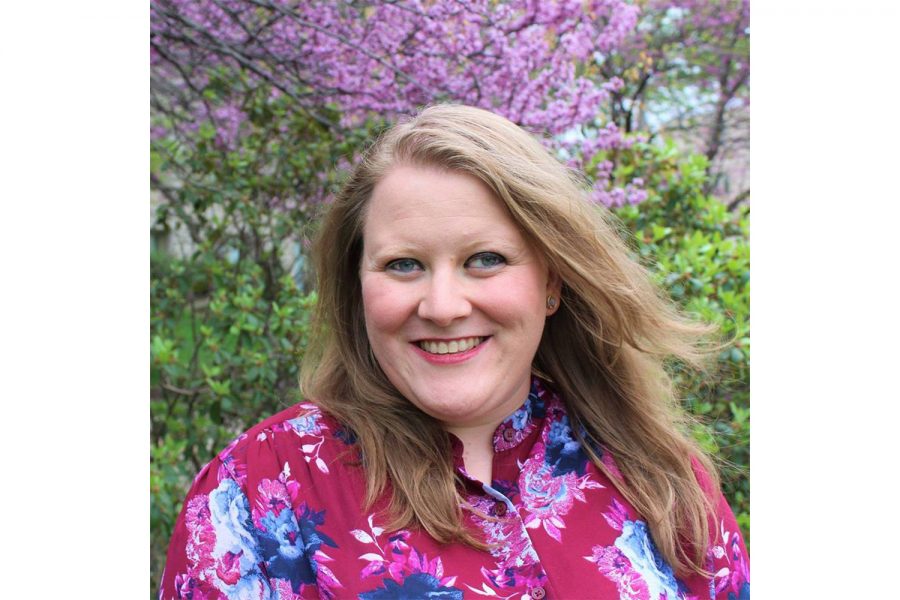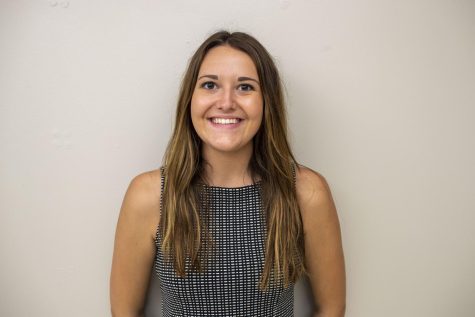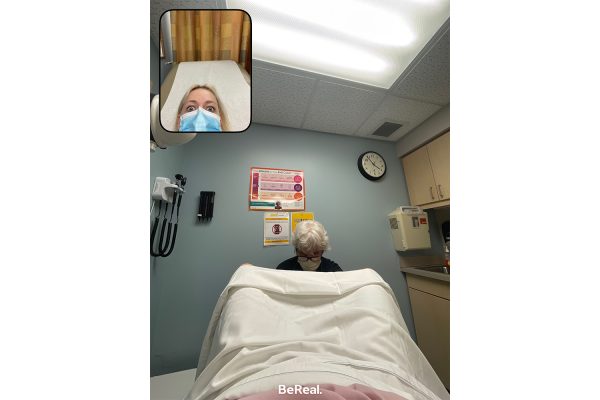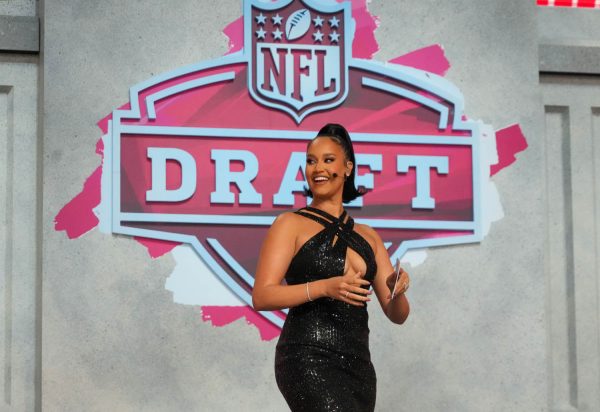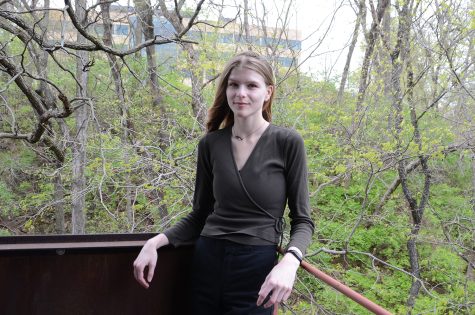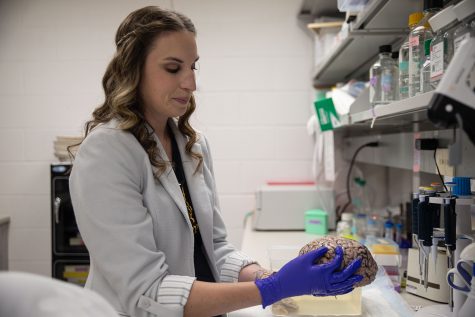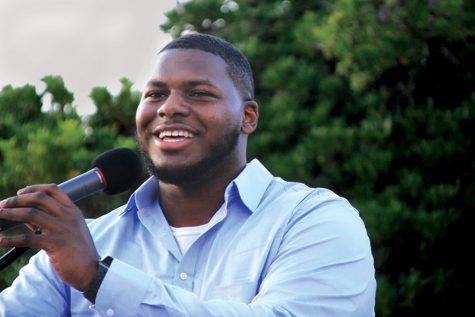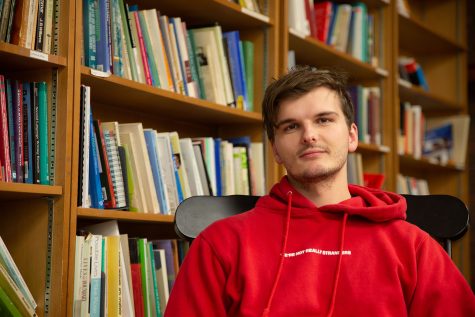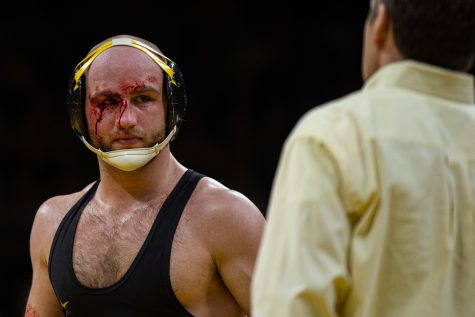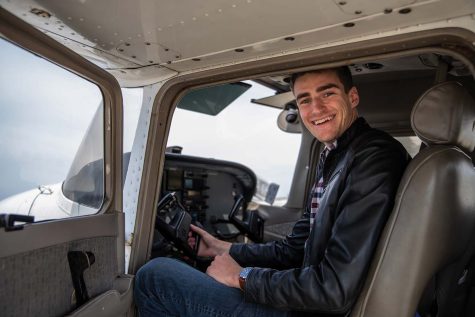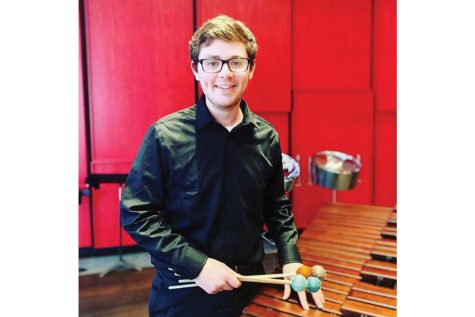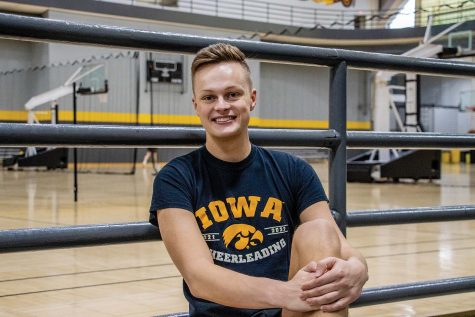UI master’s student breaks barriers for Hawkeyes, raising disability awareness
UI master’s student Andrea Courtney leaves campus with a legacy of her efforts to provide an inclusive and aware environment for those with disabilities.
May 10, 2020
When University of Iowa master’s student Andrea Courtney stepped onto campus as a transfer from the University of Northern Iowa in 2012 as a sophomore, she said she had found a home where she could express confidence in her identity and find support to break the barriers that she and her peers experienced on a daily basis.
Graduating in May from the clinical mental-health master’s program in the UI College of Education, Courtney was instrumental in raising the standard of disability accommodations for students on campus.
Courtney co-found and led as vice president of the UI chapter of To Write Love On Her Arms, a mental-health awareness organization, for two years.
When her partner, Kaydee Ecker, mentioned that Hawkeyes Accessibility Ambassadors, a budding student organization, was looking for leaders, Courtney said she applied. Although she was uncertain if she was fit to run the organization, she was happily surprised when she was chosen as president.
“When I went to the Council on Disability Awareness, I noticed how many staff and faculty members were present, but not that many students,” Courtney said. “We decided to change the name of our group to the UI Students for Disability Advocacy and Awareness.”
Another accomplishment of Courtney’s UI career includes organizing a petition to move UI Student Disability Services from the basement of Burge Hall to its own more accessible facility — an experience she said she will treasure having seen through from the end of her undergraduate education to the end of her graduate program.
UI Provost Montserrat Fuentes previously told The Daily Iowan that the temporary office will cost around $50,000 to relocate to the first floor of the University Capitol Center. This will be a three- to five-year solution while the university works on a permanent location.
Student Disability Services Accommodations Coordinator Vickie Houser, who was Courtney’s accommodations adviser, said Courtney was involved in changing lives for those with disabilities before the student organization was an active group on campus.
RELATED: Students rally for disability awareness and inclusion on campus
“She worked hard, attending meetings and reaching out to various faculty and staff members with the same thoughts that she had,” Houser said. “She met with the UI vice president for Student Life and eventually ended with a town-hall meeting where people could share their experiences. It was very impressive to see.”
Courtney said she had never considered herself a member of the disability community, though she had a visual-impairment disability for many years. In retrospect, after serving as the organization’s president for a year and presently serving as the organization’s treasurer, she has learned so much more than she ever hoped.
“I learned how to ask for what I wanted and fight for what I needed,” Courtney said. “I learned to stop apologizing for what I needed — that accommodations are a standard, not something that [those with disabilities] should be super thankful for receiving.”
Courtney said she plans to become a counselor with a specialization in those with disabilities and chronic pain.
“There are lots of intersections with disabilities that are not always recognized,” Courtney said. “Disability impacts my life and my experience, but I don’t know anything different. I got so involved with [UI Students for Disability Advocacy and Awareness] because I wanted to hear from other students, I wanted to hear why barriers were so significant and how we can change that for the better.”
UI graduating senior Ecker, who served as president of the student organization in 2019, said Courtney’s best attribute is taking an issue and deciding to pursue it, even if it had never been done before.
“My favorite conversation with Andrea was when we were discussing the problems with Student Disability Services,” Ecker said. “She was expressing how frustrating it was for her and would question if she could do [something]. Finally, she said, ‘I can’t let this go on anymore.’ ”
Ecker said Courtney inspired them by taking a stand in front of UI students, faculty, and staff with passion when she discussed disability-related issues.
“Andrea honestly and earnestly expresses her opinions,” Ecker said. “In situations where it would be easier to say nothing at all, she had a way of saying what needs to be said, even if it is not the most comfortable.”
Ecker said Courtney has worked to create a disability graduation ceremony, communicated with four different University Student Government administrations to develop a more accessible method for students and professors seeking to determine accommodations, and overall empowered students and celebrated in all aspects of their time at the university.
Houser said it was amazing to see how far Courtney has come since she walked into Houser’s office in spring 2015, asking for accommodations that she had not received in her time at UNI.
“She has worked on self-advocacy and then spun her experiences into the advocacy she has worked on for others,” Houser said. “It’s a passion of hers, that everyone can have the ability to advocate for themselves.”
Courtney said working at the Wesley Center in Iowa City, the UI campus ministry, gave her a sense of purpose, because she was able to communicate and share experiences with others who belonged to the LGBTQ community and also grew up in faith communities.
She said the experience of talking to others who were in worse situations than herself propelled her into advocacy and awareness for those who could not speak for themselves.
Courtney said she acknowledges that as a white woman who passes as straight, she has a ton of privilege. She believes her voice is always heard as a white woman. However, Courtney said, being a white women discussing marginalization can feel inappropriate, like she is is taking up space that isn’t for her.
She said it was a process to view herself as a member of a marginalized group, as an individual with a disability, because she said disability is rarely considered or included as a form of diversity.
Courtney added that her time at the UI has taught her how to be an advocate for herself in all identities. She came out as an LBGTQ community member in March 2013.
Ecker said they were proud of Courtney and said she deserves to feel so much pride and love from the entire campus.
“Her time here at the university was not just for her to get a degree,” Ecker said. “She will make an impact that will last far beyond her years here. To me, she is the representation of what a good Hawkeye is.”



